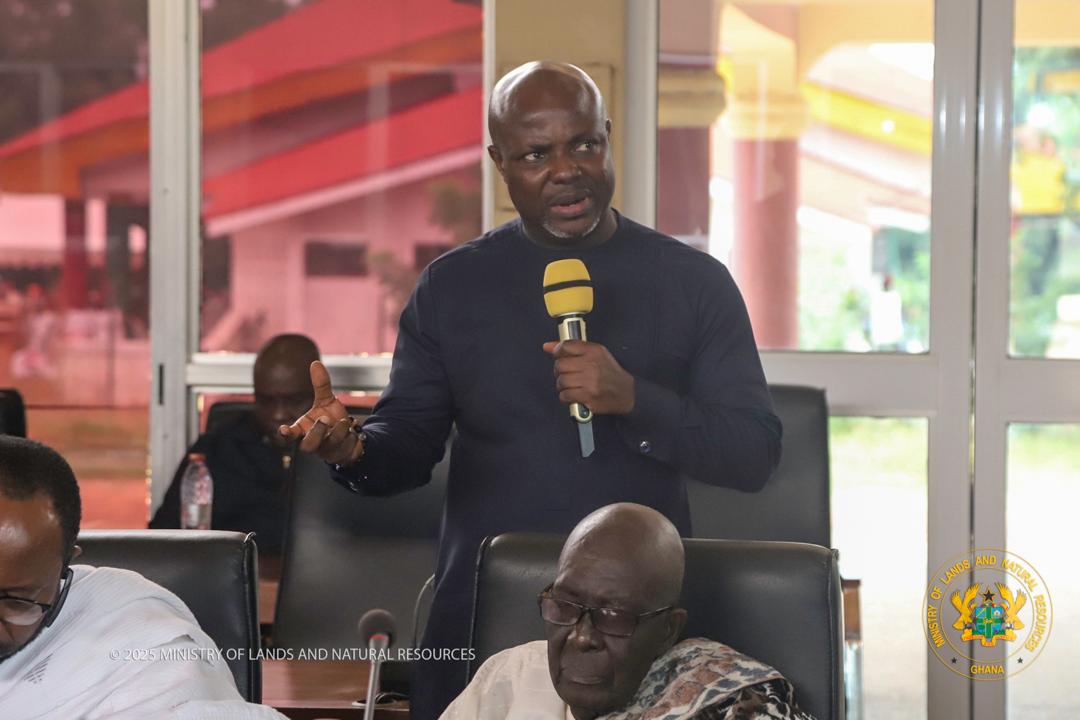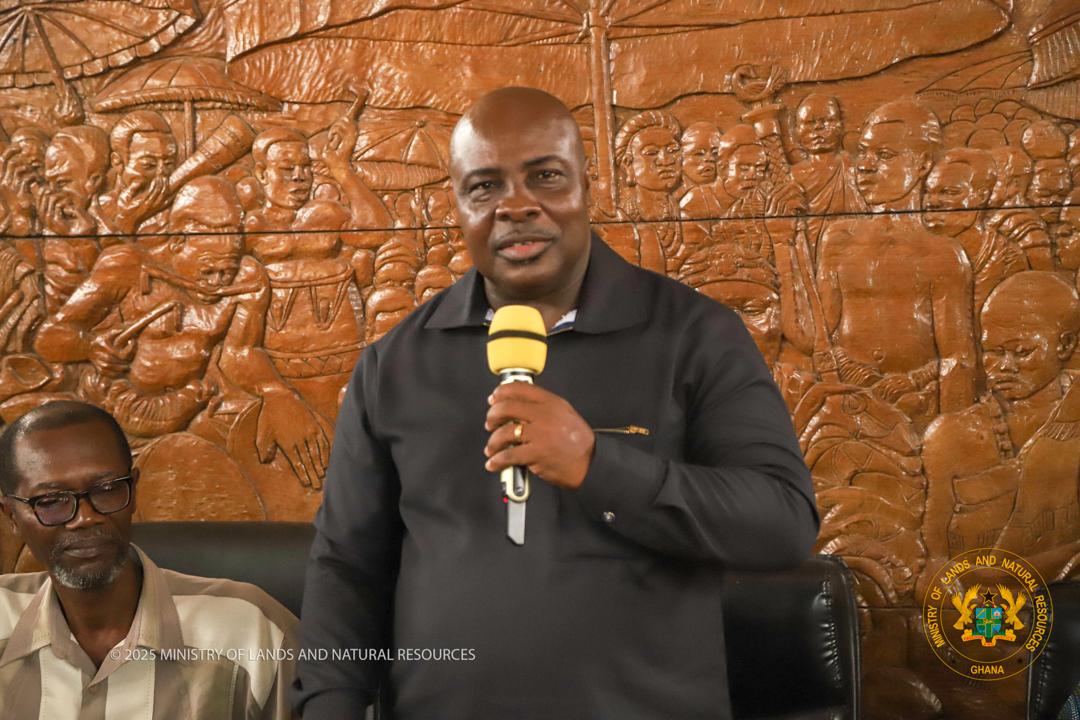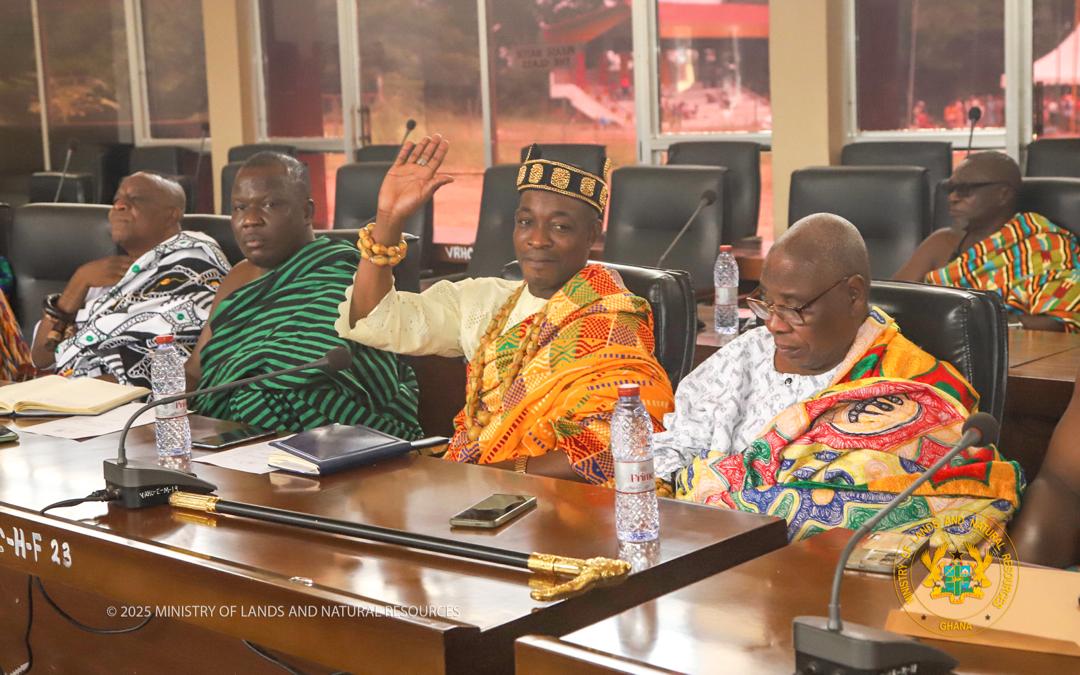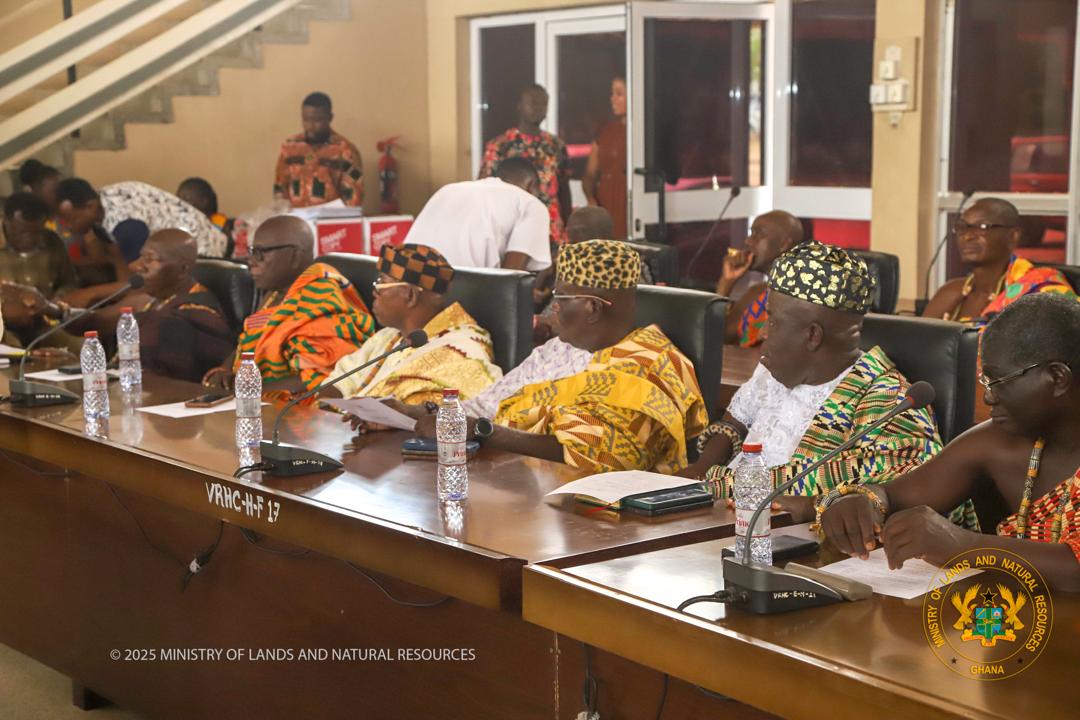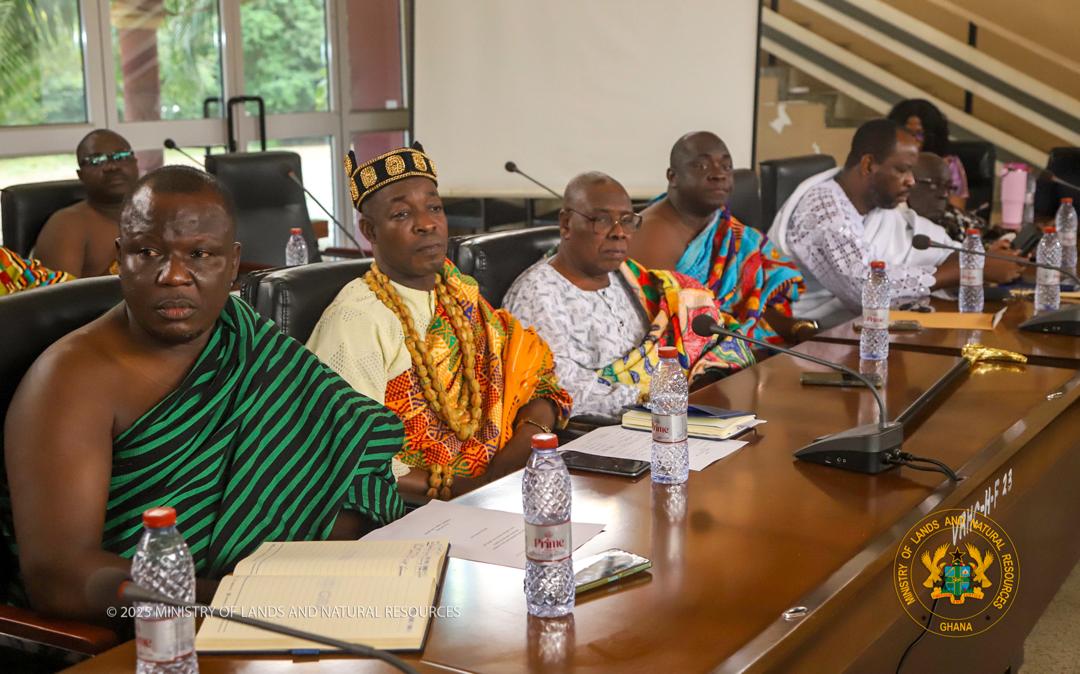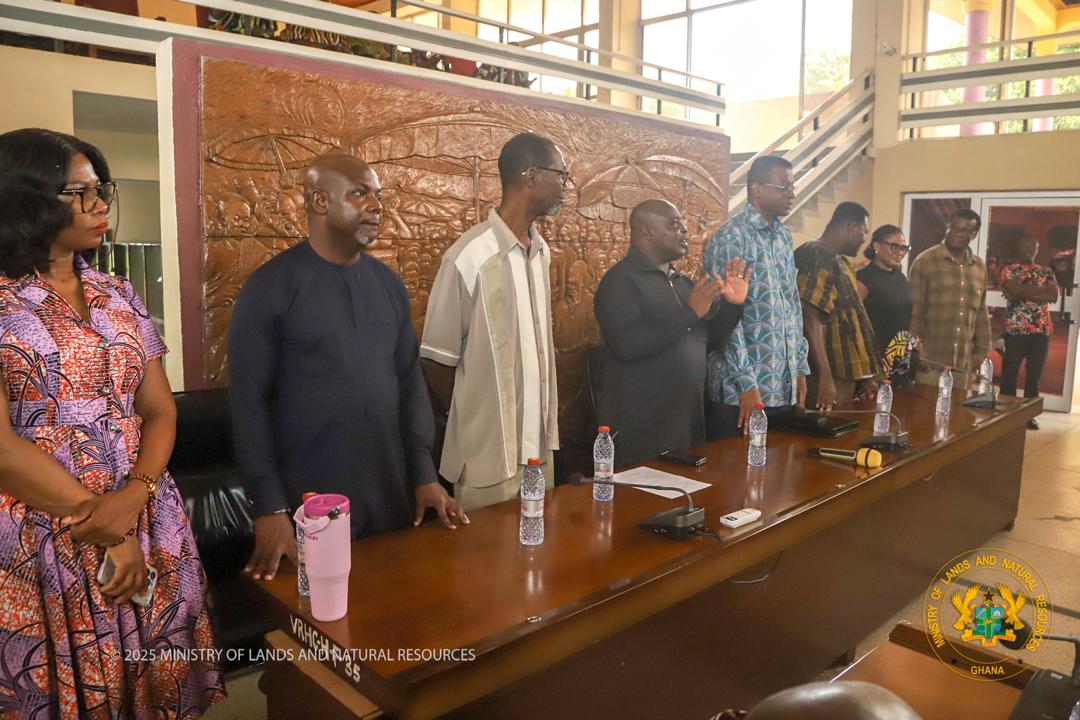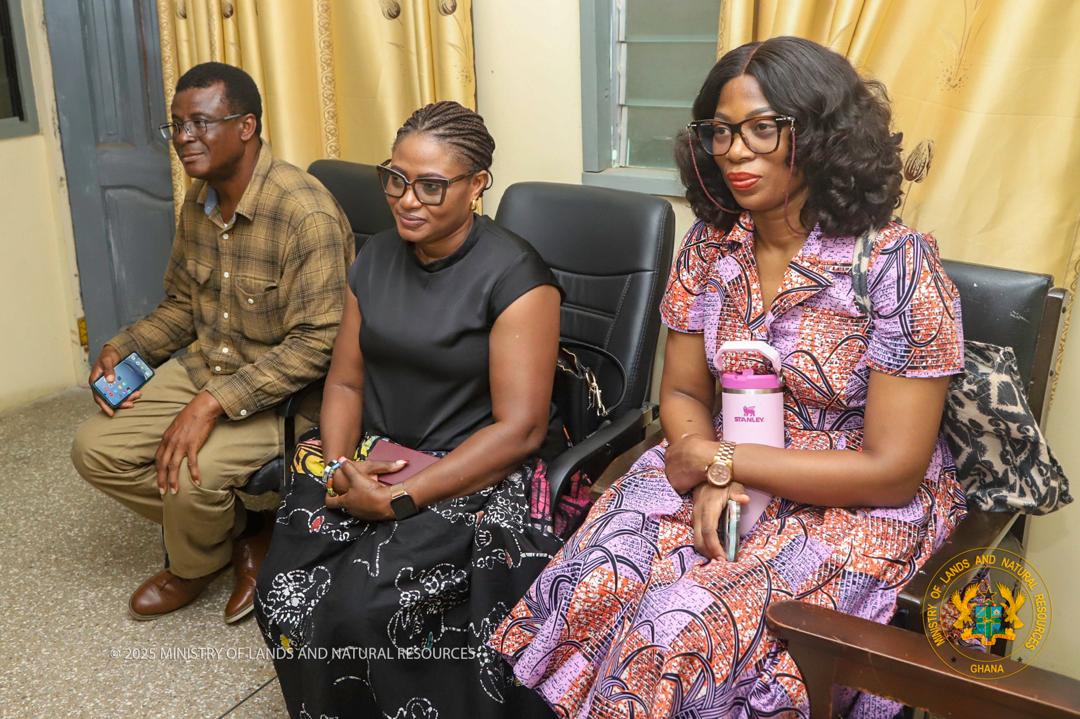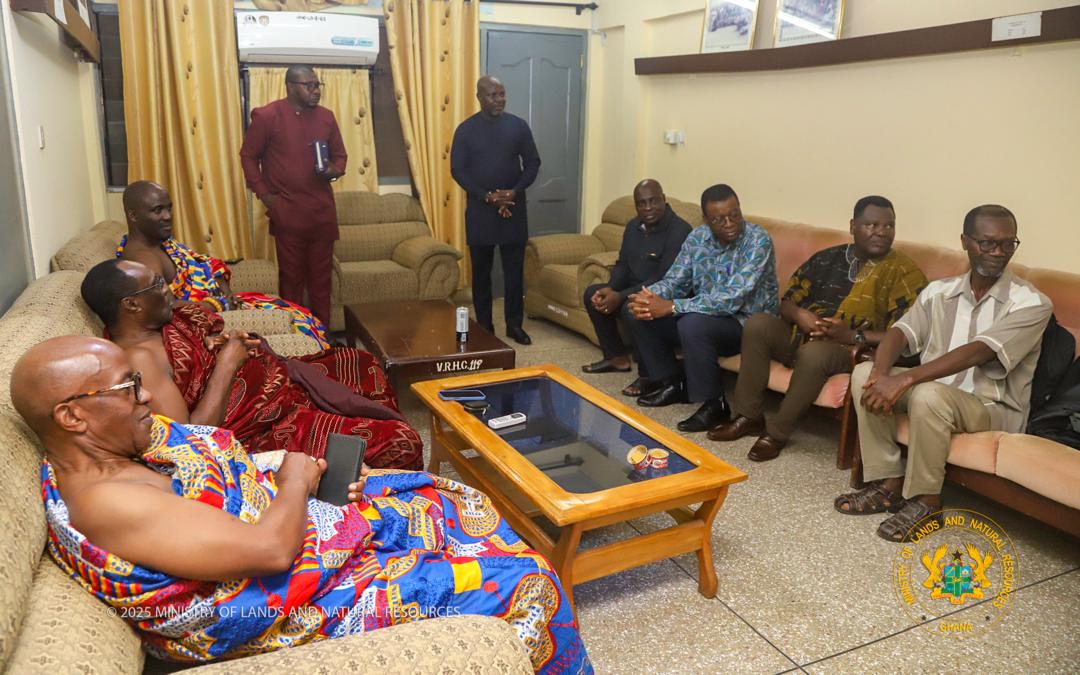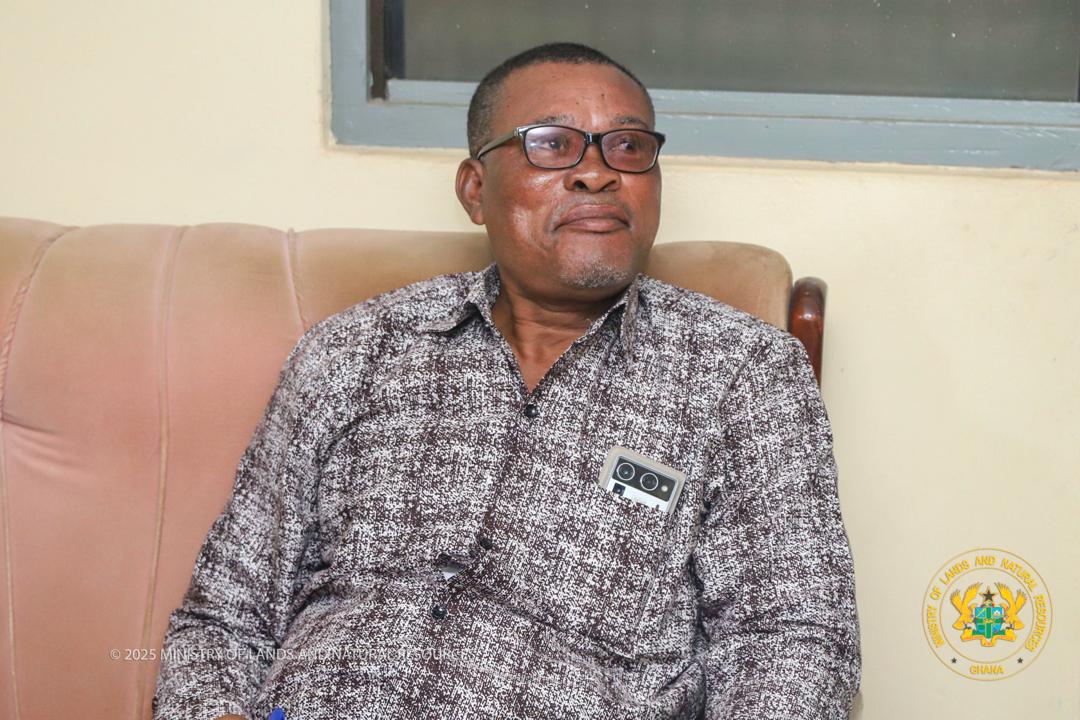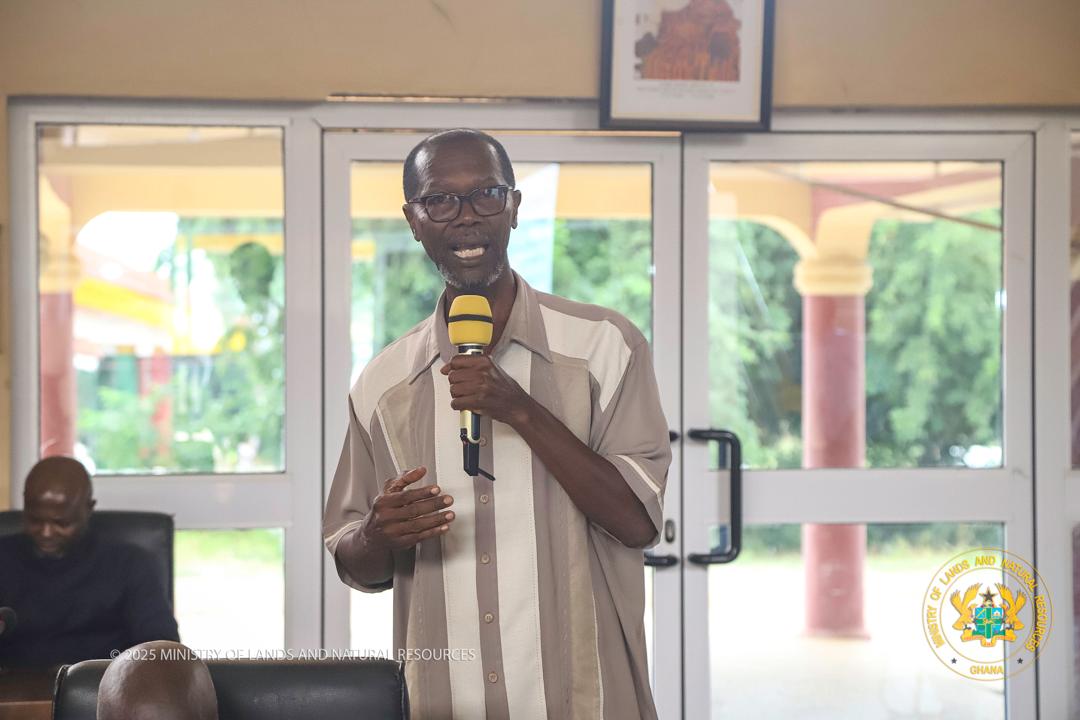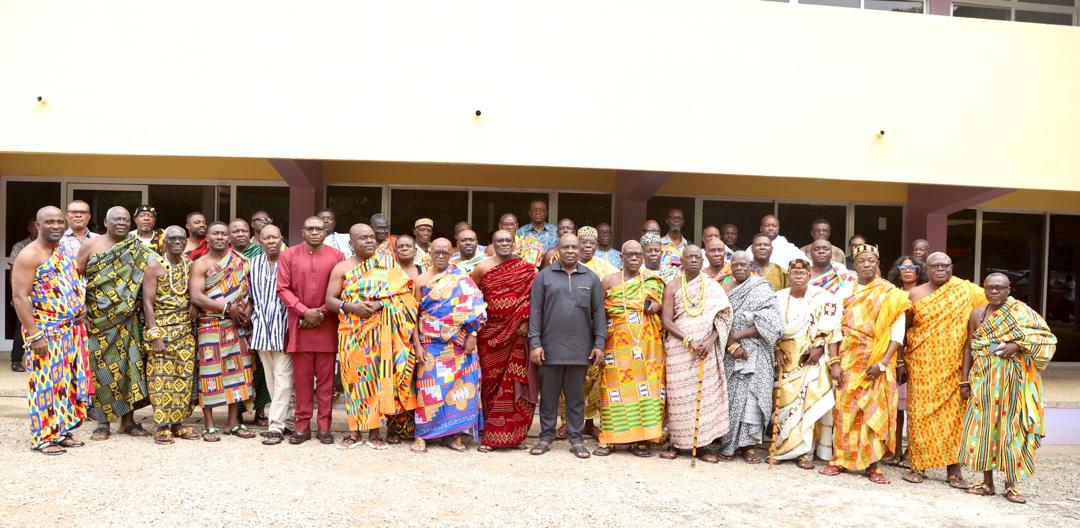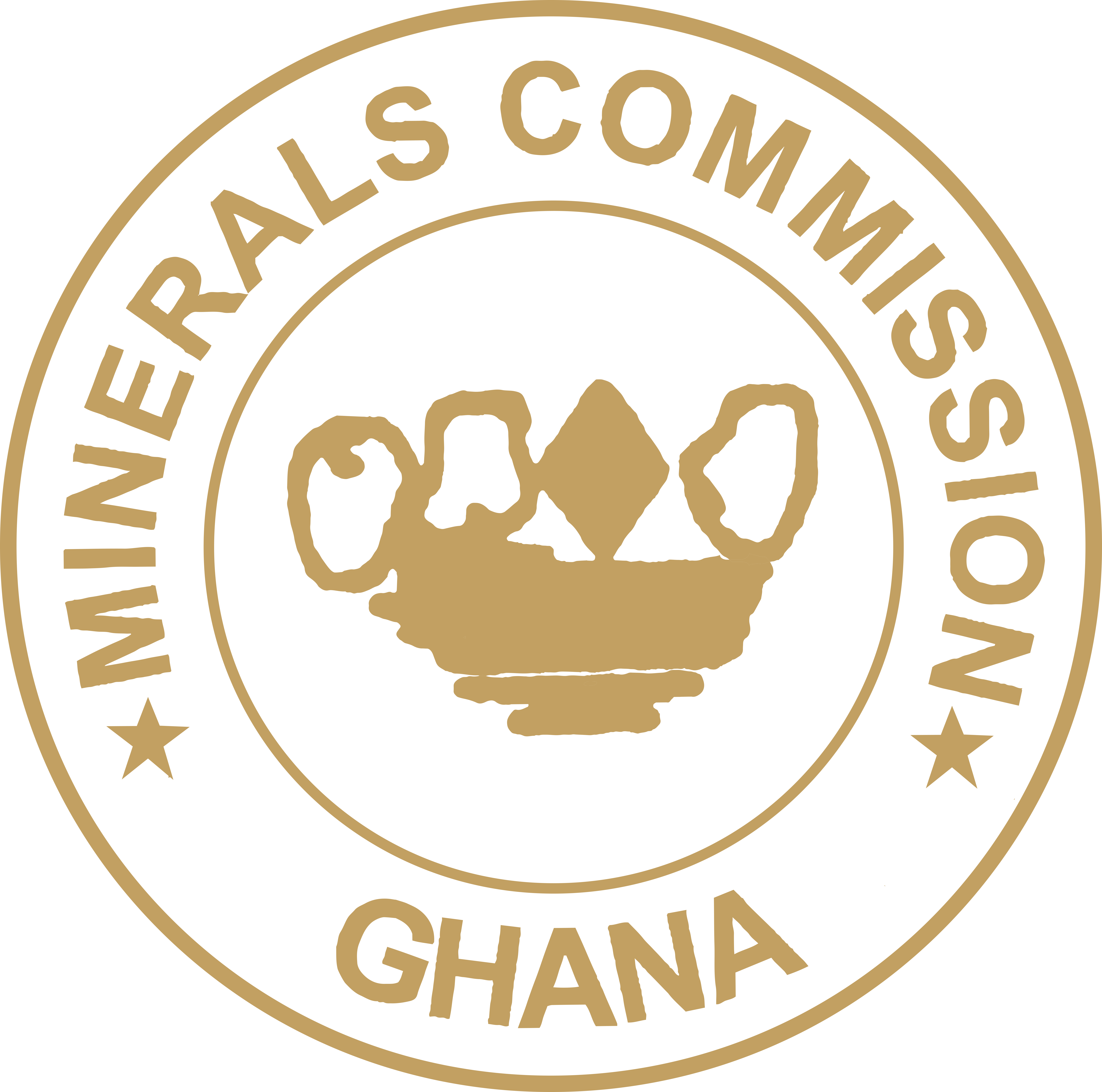Minerals Commission Engages Volta Regional House of Chiefs on Policy and Legal Reforms
August 1, 2025 – Mr. Innocent Haligah, the Chief Director of the Ministry of Lands and Natural Resources, has underscored the imperative of fostering a collaborative dialogue with the Volta Regional House of Chiefs, with the express purpose of leveraging their collective insight and perception.
This collective approach will inform the development of a comprehensive report, serving as a foundational document for stakeholder deliberations aimed at refining the legislative framework, thereby ensuring that the resultant policy is both efficacious and forward-thinking.
Mr. Haligah emphasized that stakeholder engagement, particularly with traditional authorities and community leaders, is paramount in crafting policies and laws that are deeply rooted in the realities of the indigenous populace. As custodians of the land, chiefs play a pivotal role in shaping legal instruments that govern natural resource utilization and protection, thereby necessitating their active involvement in the policy-making process, he said.
Furthermore, he highlighted the efficacy of several key strategies, including:
- The integration of traditional oversight mechanisms into the licensing process, thereby ensuring that local stakeholders have a meaningful say in mining activities and fostering a culture of participatory governance.
- The strengthening of community ownership and participation under the auspices of the Cooperative Mining Scheme, thereby promoting local economic empowerment, sustainable development, and equitable distribution of benefits.
- The implementation of measures to hold miners accountable to the people and the land, fostering a culture of transparency, responsibility, and environmental stewardship.
By adopting these strategies, Mr. Haligah posited that the Ministry can ensure that mining activities are conducted in a manner that is not only environmentally sustainable but also socially responsible and economically beneficial to local communities.
The Advisor to the Minister for Lands and Natural Resource, Prof. Samuel Jerry Kuma highlighted that minerals resources across the country are entrusted to the President, and the revenue generated is utilized for national development. Consequently, the benefits are disseminated throughout the country, impacting not only host communities directly affected by mining but larger communities that may not have mining activities within their vicinity. This underscores the government’s commitment to equitable development, where every community benefits from the revenue generated.
Prof. Kuma noted that the stakeholders’ engagement will culminate in a respectful request to the House to submit a listing to the Minerals Commission within the stipulated timeframe of two weeks.
As the Chief astutely pointed out, we propose utilizing traditional councils rather than traditional authorities, and we would like to formalize this and other agreements in writing to ensure their proper implementation, he added.
The President of the Volta Regional house of Chiefs, Togbe Tepre Hodo IV emphasized the need to equip themselves with the requisite knowledge to achieve two critical objectives.
Firstly, to effectively counteract unscrupulous individuals within their communities who seek to exploit them. Secondly, to capitalize on the benefits that accrue to traditional leaders and their respective communities as a result of mining activities.
It is imperative that we approach this matter with utmost seriousness. Let’s begin by defining what constitutes mining. As previously mentioned, our conception of mining should not be limited to precious metals like gold, bauxite, and diamonds. Rather, it encompasses a broader spectrum of activities, including the extraction of sand and gravel, he said.
According to the Constitution, the President holds these natural resources in trust for the citizenry, acknowledging that they belong to the people. Togbe Tepre Hodo IV noted that as custodians of these resources, it is our responsibility to be vigilant about their management and utilization. I urge you to consider the prospects that mining offers us, as well as the measures we can take to prevent opaque and potentially exploitative practices within the industry. With this in mind, I invite your comments and contributions to this critical discussion.
Mr. Josef Iroko, Manager of Legal at the Commission, delivered a comprehensive exposition on the prevailing state of Ghana’s mining legislation, regulatory frameworks, and administrative guidelines. He underscored the paramount importance of parliamentary ratification of mining leases, highlighting the pivotal role of legislative oversight in fostering accountability and transparency within the mining sector.
Mr. Iroko presented a thorough analysis of the Minerals and Mining Law, Act 2006 (Act 703), and delineated significant amendments to Ghana’s mining laws, providing profound insights into the evolution of the country’s mining regulatory framework.
Mr. Benjamin Aryee, the former CEO of the Commission, delivered an insightful address, drawing upon his vast expertise to significantly enrich the discourse and enlighten stakeholders on the 2014 Minerals and Mining Policy.
Further comments and questions from the members of the House of Chiefs underscored the significance of punitive measures in the Minerals and Mining Amendment Bill. Without such measures, the law would remain ineffective, merely existing on paper without any tangible impact. A pertinent question arises regarding prospecting licenses: if a license is granted for salt mining and another mineral is discovered during the process, should the licensee proceed with the original license or should an amendment be made to the license? I would appreciate clarification on this matter.
Furthermore, the facilitators emphasized the importance of engaging traditional authorities before granting mining leases. What recourse do we have if such engagement is lacking, and how can we address situations where mining activities are conducted without proper authorization?
I also wish to share a personal anecdote. Growing up, I witnessed the transportation of coconut oil, which was later deemed unhealthy. Now, with the resurgence of coconut oil’s popularity, we are importing it from abroad. This raises questions about the sustainability of natural remedies and the management of resources like mercury. Rather than outright condemnation, shouldn’t we focus on developing proper management strategies for such resources?
Additionally, I would like to highlight the need for Community Development Agreements (CDAs) to facilitate the growth of host and surrounding communities. How will the proposed CDA framework address the concerns of communities indirectly affected by mining activities?
Regarding enforcement, who will be responsible for ensuring compliance with the regulations? Will it be the same authorities who have failed us in the past? How can we guarantee effective monitoring and enforcement?
Moreover, the interplay between different interest groups on land use is a pressing concern. With local farms being converted into mining fields, how will you ensure a balance between the interests of rich miners and poor farmers?
Other concerns raised include the role of Chiefs in mining activities, the issue of foreigners operating in small-scale mining sectors, and the potential abuse of prospecting licenses. A section of the law provides for a prospecting license to be held for an initial period of three years, which may be exploited by individuals to circumvent the law. I propose revisiting this provision and limiting the duration of prospecting license to six months.
These are critical issues that require careful consideration to ensure that the mining industry benefits our communities while minimizing its negative impacts.
END.
